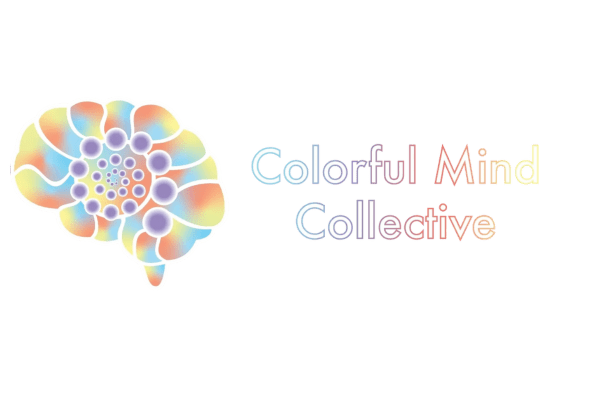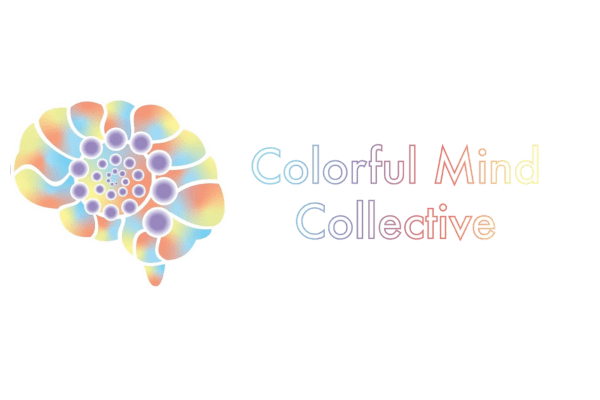Ask for Mental Health Assistance
Suicide Prevention Hotline at 800-273-TALK or (800) 273-8255.
988 Suicide and Crisis Lifeline
“The acceptance and appreciation for the beauty of your own existence is just on the other side of your struggle, keep fighting.”
“Even when you’re lost in the dark you’ll always be a colorful mind”
Suicide Prevention
Crisis Text Line
Crisis Text Line is a crisis-intervention hotline that conducts conversations exclusively by text message. Trained crisis counselors are available 24 hours a day.Direct Online and Phone Support Services for LGBTQ Youth
This web page provides online and phone support services for LGBTQ youth and their caregivers.Mental Health - Warm Lines
Warmlines are confidential, peer-run listening lines staffed by people who have experienced mental health conditions themselves.National Domestic Violence Hotline
Staying at home during the COVID-19 crisis may not be the safest option for intimate partner violence survivors. This web page provides suggestions to make survivors feel safer during this uncertain time.National Suicide Prevention Lifeline
The National Suicide Prevention Lifeline provides 24/7 support for people in suicidal crisis or emotional distress.The National Sexual Assault Telephone Hotline The National Sexual Assault Telephone Hotline is a confidential service that connects callers with local sexual assault service providers.
Trans Lifeline
The Trans Lifeline’s Hotline is a peer-support service for trans and questioning individuals in crisis. All operators are trans-identified.TrevorChat
A free, confidential, secure instant messaging service for LGBTQ youth that provides live help from trained volunteer counselors, open daily from 3–10pm ET / Noon–7pm PT.Trevor Lifeline
The only national 24/7 crisis intervention and suicide prevention lifeline for LGBTQ young people under 25, available at 1-866-488-7386.ULifelineSuicide
ULifeline is an anonymous, confidential, online resource center that provides college students with information about emotional health.
Self-Help and Recovery
- A resource for individuals struggling with mental health, as well as loved ones and those affected by mesothelioma.
- Depression and Bipolar Support Alliance (DBSA)'s Online Support Groups
- The Depression and Bipolar Support Alliance offers online support groups for people living with depression and bipolar disorder.
- Emotions Anonymous is a 12-step recovery program for people living with emotional difficulties.
- https://www.depressioncenter.org/toolkit/im-looking-more-resources-1/fact-sheets-tools-and-checklists
"Eisenberg depression center" - Fact sheets, checklist and tools for mental health access - https://www.depressioncenter.org/toolkit/im-looking-more-resources-1/self-assessment-tools
"Eisenberg depression center"- Mental Illness self assessment test - https://www.selfhelpcollective.com/
A website that will help you along your journey of becoming the best version of yourself filled with personal development toolkits - CrisisNOW
CrisisNOW provides a roadmap to safe, effective crisis care. Their goal is to keep people out of emergency rooms or jails by providing targeted services for people in distress. - https://www.activeminds.org/ Active Minds is mobilizing youth and young adults to transform mental health norms across society.
-
https://www.bringchange2mind.org/ End the stigma and discrimination surrounding mental illness
Resources for People of Color
organization that connects individuals with therapists and provides professional training.
social impact business that provides mental health education, therapy, community support and resources to help young adult Black women.
fact sheet about prevalence of, attitudes about, and treatment for mental health issues with information specific to bipolar disorder and clinical depression.
website associated with a podcast by same name that offers a therapist locator, group chats and blog articles to encourage the wellness of Black women and girls.
detailed therapist listings for states and major cities.
organization for professionals that has fact sheets on brain injury, trauma and violence exposure, intimate partner violence, student-adjustment challenges, bullying and suicide.
organization based in the state of Washington that provides Asian American and Pacific Islander communities with mental health services and support.
website working to reduce stigma about and improve access to therapy with guidance on finding a therapist.
group raising awareness about the importance of mental health care among Asian Diasporic communities with an Asian Pacific Islander Desi American Therapist Directory of providers nationwide.
Asian Pacific Counseling and Treatment Centers:
agency based in Los Angeles County, California, that offers mental health counseling online as well as workshops and group activities for the Asian Pacific communities in its service area.
organization that provides information and programs related to mental health topics such as stressors and their risk factors, meditation, yoga exercises and anger management.
National Asian American Pacific Islander Mental Health Association:
organization with trainings, self-care tips and articles related to the mental health of Asian Americans, Native Hawaiians and Pacific Islanders.Latinx Therapy:
directory of mental health therapists and other helpful information for the Latinx community.Therapy for Latinx:
directory of verified therapists, psychiatrists, community clinics, emergency mental health, life coaches and support groups for the Latinx community.National Alliance for Hispanic
Health:organization with information on various topics that offers a helpline (866-783-2645) for assistance navigating the health system.Supporting the Hispanic/Latino Community
The Campaign to Change Direction: initiative with crisis counseling text line (text 741741).Behavioral Health, Indian Health Service:
agency information hub with sections on various behavioral health issues, mental health issues and suicide.Center for Native American Youth:
organization with tools including videos, peer-to-peer engagement activities and a resource exchange.National Indian Health Board:
Tribal governments’ organization with toolkits and information on federal agencies and private foundations providing services.Native Americans for Community Action:
organization in Arizona providing behavioral health services.Native American Health Center:
California Bay-Area organization providing behavioral health services.Tribal Affairs, SAMHSA:
information on services the government agency provides to Native American communities accompanied by details on the Suicide Prevention Lifeline (800-273-8255) and SAMHSA’s National Helpline (800-662-4357).
FOOD AND NUTRITION SECURITY
Chefs for America - Food Location
This interactive map allows you to find free meal options in U.S. cities and districts.Feeding America - Local Foodbank
The Feeding America national network of food banks collects and distributes 4.3 billion meals each year throughout the United States. Find your local food bank to learn more about food and meal programs.Project bread
Project Bread prevents hunger by making it easier for everyone in Massachusetts to access and afford food with dignity.
ECONOMIC SECURITY
Freelance Artist Resource List
Here’s a list of free resources, opportunities, and financial relief options for freelance artists and those interested in supporting the artist community.Artists for Humanity
A place where teens are employed to explore and express their creative abilities.

Fight Stigma and Support Mental Health
Despite all of the advances made in understanding depression and other mental illnesses, these conditions are still stigmatized. The negative perception of mental illness probably comes from people not understanding mental illness or what it means to struggle with a mental illness. Mental illness stigma can lead to feelings of shame and self-consciousness. It can negatively impact help-seeking as well as early detection and prevention. Standing up to mental health stigma is an important way to support your own mental health and give a voice to those who are suffering in silence.

Ways To Fight Stigma and Support Mental Health:
Gain perspective. When thinking about the role depression plays in someone else’s life or in your own life, here are some statements to share/take to heart:
- Depression is something you have. It does not define you.
- You are much more than your diagnosis. Your personality, talents, skills, and compassion are your defining traits—not your depression.
- Like diabetes or cancer, depression is a physical illness that needs to be carefully treated. Just as a diabetic should take daily steps to monitor and control blood sugar levels, you should take action to monitor and control your symptoms of depression.
Share positive messages about mental health. Use social media or another approach to openly discuss mental health, to show your support for others who do so, and to share validated information about mental illness and treatment.
Educate yourself and others about mental health. Education can reduce stigma and improve the environment surrounding mental illness. Education is the most powerful tool you can use to counter any shame you may feel about your mental illness and to make sure others know what mental illness is (and isn’t).
Be conscious of your language. Words matter. Avoid using hurtful words and labels such as “nuts,” “crazy,” or “strange” when talking about yourself or someone else with a mental illness. Use respectful language when talking about mental health. Instead of “the mentally ill,” use “people with a mental illness,” and instead of “committed suicide,” use “died by suicide.” Let someone know if you hear them using harmful language.
Recognize someone’s identity outside of their illness. Viewing someone as their diagnosis reduces the complexity of their experience; their diagnosis is not the defining factor of their identity.
Support local and national mental health organizations and crisis centers. Volunteer or donate to organizations like the National Alliance on Mental Illness (NAMI), the Depression and Bipolar Support Alliance (DBSA), or the National Suicide Prevention Lifeline to support this life-saving work. Join one of many groups online and in person that advocate for people with mental illness.
Speak up. If you suspect that someone may be in a crisis or is struggling with their mental health, send messages of support and assist them in getting the help they need. There are even ways to help if you see someone post a status on social media that shows signs of self-harm. Reach out to them or someone who knows them, or report it to the social media site.
Be a mental health advocate. You may decide to start or sign a petition, write to your elected representatives, start a mental health blog, or spread mental health awareness in some other way. Organizations like the National Alliance on Mental Illness (NAMI) and the Depression and Bipolar Support Alliance (DBSA) can provide ideas and support for advocacy initiatives.
References
Alonso, J., Buron, A., Bruffaerts, R., He, Y., Posada‐Villa, J., Lepine, J. P., ... & Mneimneh, Z. N. (2008). Association of perceived stigma and mood and anxiety disorders: results from the World Mental Health Surveys. Acta Psychiatrica Scandinavica, 118(4), 305-314.
Schnyder, N., Panczak, R., Groth, N., & Schultze-Lutter, F. (2017). Association between mental health-related stigma and active help-seeking: systematic review and meta-analysis. The British Journal of Psychiatry, bjp-bp.

